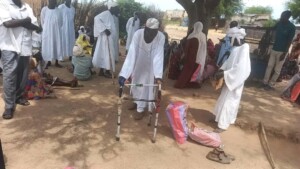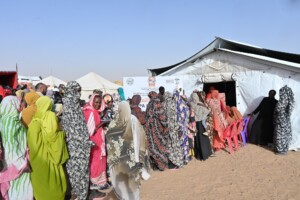Sudan ‘expels’ OCHA Head of Office
The Sudanese government has de facto expelled the Head of Office of the United Nations Office for the Coordination of Humanitarian Affairs (OCHA) by refusing to renew his annual “stay permit” for another year.
The Sudanese government has de facto expelled the Head of Office of the United Nations Office for the Coordination of Humanitarian Affairs (OCHA) by refusing to renew his annual “stay permit” for another year.
In a press statement today, the UN Humanitarian Country Team in Sudan expressed shock and disappointment at the de facto expulsion by the government of Sudan of Ivo Freijsen, one of its senior UN humanitarian affairs officials, and Head of Office of OCHA.
“The Ministry of Foreign Affairs has informed the United Nations in Sudan that Freijsen’s annual stay permit will not be renewed when it expires on 6 June 2016. This is despite the request for a 12-month extension of his stay permit, as per routine process, which was submitted on 10 April 2016. The Ministry of Foreign Affairs has provided no official explanation in writing for this decision.
“This action by the government of Sudan is inconsistent with the fundamental principles of the international civil service enshrined in the Charter of the United Nations, the organisation’s foundational treaty, to which Sudan is a party.”
Freijsen is the fourth senior UN official to be expelled from Sudan in the last two years.
Freijsen, who hails from the Netherlands, is the fourth senior UN official to be expelled from Sudan in the last two years. “This comes in addition to the forced closure of international NGO Tearfund in December 2015 and the de facto expulsion of three international NGO country representatives in recent months.”
The statement expressed the team’s concern “about the impact of this decision on the operating environment for all humanitarian organisations in Sudan, which provide emergency relief, and early recovery and transitional assistance to those in need.”
In 2015 the team and its partners coordinated and implemented the delivery of more than $600 million worth of aid to hundreds of thousands of people across the country.
The team calls upon the government of Sudan to ensure a fully conducive environment for delivering timely, principled and quality humanitarian assistance.”
The Humanitarian Country Team is the highest-level decision-making forum of the Inter-Agency Steering Committee (IASC) structures in Sudan and is the primary mechanism for coordination among UN agencies and NGOs. The IASC was established globally by a resolution of the UN General Assembly. Members of the Humanitarian Country Team in Sudan include representatives from FAO, UNDP, UNFPA, UNHABITAT, UNHCR, UNICEF, UNOCHA, WFP, WHO, IOM, the international NGO Forum Steering Committee and IICO. MSF, an observer to the Humanitarian Country Team in Sudan, also aligns itself with this statement.











 and then
and then